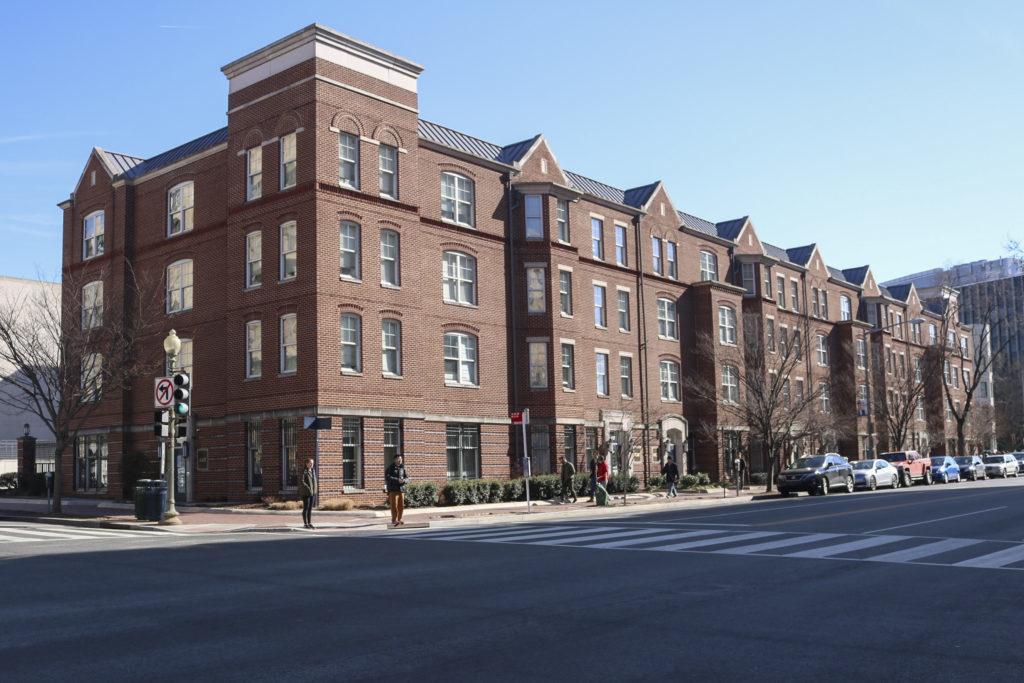Updated: April 12, 2017 at 11:38 a.m.
Social fraternity leaders are in the final stages of returning to a policy that allows chapter presidents to decide consequences of some misconduct cases among their members.
The Interfraternity Council, the group that oversees social fraternities on campus, is implementing a self-governance policy that allows chapter presidents to collectively decide punishments for members who violate internal rules and some University policies, the council’s president said.
Current and former fraternity leaders said establishing the policy will help strengthen the IFC after a more than year-long period during which the Office of Student Rights and Responsibilities handled all misconduct cases. They said SRR’s involvement created frustrations in Greek life because universities host, not control, chapters on their campuses.
“We want to have responsibility back in our hands, we want to be able to give ourselves more legitimacy,” IFC President Harley Pease said. “It’s important to govern each other and hold each other accountable and responsible.”
Pease said he did not know why the internal judicial process ended.
We want to have responsibility back in our hands, we want to be able to give ourselves more legitimacy.
Brandon Capece, the former IFC president, did not return multiple requests for comment, and the University official overseeing Greek life declined to comment on ending the internal policy, saying that only in some years self-governance has been more of a focus in the IFC than in others.
Pease said the new policy has been months in the making and first began under Capece last year. He said the council has worked with SRR and Center for Student Engagement officials to shape the policy, defining what specific sanctions mean and when they would be necessary.
After the hearings stopped, SRR investigated and determined sanctions on its own. A chapter would have to go to the University Hearing Board to contest the office’s findings, where a panel of students, sometimes with faculty and staff, would decide the appeal, a former fraternity leader said.
Under the self-governance policy, the IFC will hold judicial hearings by chapter presidents, representatives from the offending chapter and a University official.
The IFC reads the findings of an investigation and the chapter has an opportunity to present a defense. Chapter presidents then determine if there was a violation and what the punishment should be.
SRR will still be solely responsible for major cases involving hazing and sexual assault and will be able to upgrade or downgrade any punishments in cases chapter presidents determine, Pease said.
He said IFC will hold judicial hearings to determine punishments for internal IFC infractions, like recruitment violations, and minor misconduct cases, like alcohol possession or destruction of property.
Officials have already approved the “idea” of a self-governing policy, but still needed to iron out the final details before the council could begin holding judicial hearings, Pease said. Chapter presidents held a formal training with the IFC and SRR Director Gabe Slifka about the new policy and conducted mock hearings in February, he said.
Pease said the IFC previously had its own internal rules but didn’t have a mechanism to enforce them.
“We had a constitution that said if you violate this, that is an IFC violation, but I don’t think there was any teeth to it,” he said.
Sean Raymond, the former president of Beta Theta Pi, said the IFC had a self-governing policy that allowed fraternities to mostly police themselves, but the council stopped holding judicial hearings in early 2015.
Raymond said chapter presidents often handed down harsh punishments, like social probation – a sanction that bans chapters from hosting events with alcohol – for hosting unregistered events.
“Because it was a collective thing we would give heavy-handed sanctions if necessary,” he said. “It wasn’t because it was the IFC deliberating IFC cases, they would only get a slap on the wrist.”
Raymond said once the hearings stopped happening, SRR would handle the entire case, conducting investigations that often frustrated fraternity leaders over a lack of transparency.
It’s almost like a plea bargain, that if you don’t accept whatever SRR has dictated in this letter, you might as well be screwed.
Raymond said the office would issue a charge letter, laying out the accusations and chapters could contest by going to a student judicial board hearing – a process he said chapter members believed was overly hostile.
“It’s almost like a plea bargain, that if you don’t accept whatever SRR has dictated in this letter, you might as well be screwed,” he said.
Christina Witkowicki, the director of student involvement and Greek life at the CSE, said a self-governance policy for the IFC has been in place at GW since 2011, but the “success of this policy hinges” on the IFC’s interest and its ability to adjudicate cases, which includes training officers, submitting reports and scheduling hearings.
“Each IFC has had a different set of priorities and as such, the self-governance policy and process have not always been the focus of this governing body,” she said in an email.
Witkowicki said there is a “preference by all involved” that cases involving alcohol or property destruction be decided internally.
Dominic Greene, the director of student activities at American University, said a self-governance policy requires a high level of trust between university officials and Greek chapters.
“The conduct office has to know that students are taking things seriously and the students have to trust the conduct office that they’re not going to get screwed,” he said.
This post was updated to reflect the following corrections:
The Hatchet incorrectly reported how chapters could contest the findings of an SRR-led misconduct investigation. The chapters appealed to a hearing board, not Student Court. The Hatchet also incorrectly reported that a University official presents a case at an IFC judicial hearing. A University official is present, but the IFC reads the charges and findings of an investigation. We regret these errors.





